Amos 6 meaning explained in AI Summary
Chapter 6 of the Book of Amos delivers a scathing critique of the wealthy elite in Israel and their impending downfall.
1. Woe to the Complacent: Amos begins by pronouncing "woe" upon those living comfortably in Zion (Jerusalem) and Samaria (capital of Israel), the leaders and wealthy who feel secure and unconcerned about the state of the nation. They are oblivious to the impending danger.
2. Indictment of Luxury and Indifference: Amos condemns their lavish lifestyles, filled with feasting, drinking, music, and expensive oils, while ignoring the suffering and oppression around them. Their pursuit of pleasure has blinded them to justice and righteousness.
3. False Sense of Security: The wealthy believe their wealth and military strength will protect them. However, Amos warns that their complacency and disregard for God's law will lead to their downfall. They will be the first to go into exile, their feasts turned into mourning.
4. Call to Repentance Ignored: Amos emphasizes that God desires justice and righteousness, not empty rituals or sacrifices. He has repeatedly sent warnings through prophets, but the people have refused to listen or change their ways.
5. Inevitable Judgment: The chapter concludes with a powerful image of God's judgment. He will use a nation (likely Assyria) to conquer Israel. Their luxurious furniture will be looted, and their palaces destroyed. Their complacency will be replaced with captivity and despair.
Key Themes:
- Social Injustice: Amos condemns the vast disparity between the rich and the poor, highlighting the exploitation and oppression of the vulnerable.
- False Security: Material wealth and military might offer no true security. True security comes from seeking God and living justly.
- Judgment and Hope: While judgment is inevitable for the unrepentant, the possibility of repentance and restoration remains open.
Overall Message:
Chapter 6 serves as a stark warning against complacency, indifference, and social injustice. It reminds us that true security and blessing come from aligning ourselves with God's will and prioritizing justice, righteousness, and compassion for the vulnerable.
Amos 6 bible study ai commentary
Amos 6 declares God's judgment against the complacent and arrogant elites of both Israel (Samaria) and Judah (Zion). It delivers a "Woe" oracle, a pronouncement of doom, upon those whose wealth and luxury have made them blind to social injustice and the nation's impending moral and physical collapse. Their false sense of security, built on national pride and material comfort, is directly contrasted with God's absolute abhorrence of their behavior. The chapter systematically dismantles their pride, details their sins of indulgence, and culminates in a divine oath to bring about a devastating and complete exile.
Amos 6 Context
This prophecy was delivered during the mid-8th century BC, a period of remarkable peace and prosperity for the northern kingdom of Israel under King Jeroboam II and the southern kingdom of Judah under King Uzziah. Militarily secure and economically prosperous, the wealthy class enjoyed an unprecedentedly high standard of living. However, this affluence was built on the oppression of the poor and was accompanied by rampant social injustice and religious formalism. The people felt secure, believing God’s favor was proven by their prosperity. Amos, a shepherd from Judah, was sent by God to confront the northern kingdom’s corruption and warn them that their security was an illusion and that their covenant-breaking lifestyle would lead to total destruction by the hand of the rising Assyrian empire.
Amos 6:1
Woe to those who are at ease in Zion, and to those who feel secure on the mountain of Samaria, the notable men of the first of the nations, to whom the house of Israel comes!
In-depth-analysis
- Woe (hôy): A cry of doom and funeral lament. It is not just a warning but a declaration of a tragic state that will lead to certain judgment.
- At ease in Zion... secure on... Samaria: Amos uniquely addresses both the southern (Judah/Zion) and northern (Israel/Samaria) capitals. Though his primary mission is to Israel, he shows the corruption is systemic in both kingdoms. Their "ease" is a dangerous complacency and spiritual apathy.
- Notable men of the first of the nations: This is a quote of their own arrogant self-perception. They saw Israel as God's premier nation (rê'shı̂yth haggôyim) and themselves as its leading citizens. This pride is the root of their sin.
- To whom the house of Israel comes: The leaders were supposed to be the arbiters of justice and the guardians of the covenant. The people came to them for guidance and judgment, but these leaders were failing in their core duty.
Bible references
- Luke 6:24-25: 'But woe to you who are rich, for you have received your consolation. Woe to you who are full now, for you shall be hungry...' (Jesus' parallel "woes" to the comfortable).
- Isaiah 32:9: 'Rise up, you women who are at ease, hear my voice; you complacent daughters, give ear to my speech.' (A similar warning to the complacent women of Jerusalem).
- Revelation 3:17: 'For you say, I am rich, I have prospered, and I need nothing, not realizing that you are wretched, pitiable, poor, blind, and naked.' (The self-deception of the Laodicean church).
Cross references
Jer 7:4 (false trust in institutions); Zeph 1:12 (punishing the complacent); Rev 18:7 (the arrogance of Babylon).
Amos 6:2
Go over to Calneh and see, and from there go to Hamath the great; then go down to Gath of the Philistines. Are you better than these kingdoms? Or is their territory greater than your territory,
In-depth-analysis
- This verse employs a rhetorical argument. The leaders are told to look at other significant city-states:
- Calneh and Hamath: Important cities in Syria to the north.
- Gath: A major Philistine city to the west, which King Uzziah had recently subdued (2 Chr 26:6).
- The point is cutting: "You see these great cities, some of which we have even defeated? You think this makes you superior and invincible?" Amos uses their own military pride against them. He implies that just as these kingdoms were powerful yet vulnerable, so are Israel and Judah. In fact, Assyria would soon conquer Calneh and Hamath, a chilling foreshadowing of Israel's own fate.
Bible references
- Isaiah 10:9: 'Is not Calno like Carchemish? Is not Hamath like Arpad? Is not Samaria like Damascus?' (The Assyrian king boasting of his conquests, showing these cities would fall).
- 2 Chronicles 26:6: 'He went out and made war against the Philistines and broke down the wall of Gath...' (The historical basis for Judah's pride over Gath).
- Nahum 3:8: 'Are you better than Thebes...?' (A similar rhetorical question posed to the proud city of Nineveh before its fall).
Cross references
2 Ki 14:25 (Jeroboam II's territorial expansion); Eze 27:8-11 (Hamath's prominence); 2 Ki 18:34.
Amos 6:3
O you who put far away the day of disaster and bring near the seat of violence!
In-depth-analysis
- Put far away the day of disaster: A classic example of denial and willful ignorance. They refuse to believe judgment is coming, dismissing the warnings of prophets like Amos.
- Bring near the seat of violence: A powerful paradox. While they imagine the "day of disaster" (from God) is distant, their own actions—oppression, corruption, and injustice—are actively establishing a "reign of terror" in the present. Their luxurious lifestyle is funded by violence against the poor.
Bible references
- Isaiah 5:19: 'who say: “Let him be quick, let him speed his work that we may see it...”' (Scoffers daring God to act).
- Ezekiel 12:22: '“Son of man, what is this proverb that you have in the land of Israel, saying, ‘The days grow long, and every vision fails’?”' (Addressing the same denial of impending judgment).
- 2 Peter 3:4: 'They will say, “Where is the promise of his coming? For ever since the fathers fell asleep, all things are continuing as they were from the beginning of creation.”' (New Testament description of end-times scoffers).
Cross references
Psa 10:6; Psa 94:20; Matt 24:48-49.
Amos 6:4-6
“Woe to those who lie on beds of ivory and stretch themselves out on their couches, and eat lambs from the flock and calves from the midst of the stall, who sing idle songs to the sound of the harp and like David invent for themselves instruments of music, who drink wine in bowls and anoint themselves with the finest oils, but are not grieved over the ruin of Joseph!
In-depth-analysis
- A Portrait of Decadence: This is a detailed list of their sins of self-indulgence.
- Beds of ivory: Archaeologists have found exquisite ivory inlays in Samaria, confirming this was a symbol of extreme wealth and royal luxury.
- Stretch themselves out (serûḥîm): A word implying lazy, decadent lounging.
- Lambs... and calves: They consume only the best, most choice meats, a luxury far beyond the reach of the common person they were oppressing.
- Sing idle songs... like David: A deeply blasphemous comparison. David invented instruments and wrote psalms for the holy worship of Yahweh. They have co-opted this legacy to create meaningless entertainment for their drunken parties. This is a sacrilegious parody of true worship.
- Wine in bowls: Drinking wine from large ceremonial bowls (mizrāq) instead of cups showed gross excess. These were basins often used in temple rituals, implying another layer of profanity.
- Not grieved over the ruin of Joseph: This is the heart of the indictment. "Joseph" refers to the northern kingdom (Ephraim and Manasseh). Their "ruin" (shēver) is the moral, spiritual, and social collapse of the nation. They are completely oblivious and unconcerned about the nation's terminal sickness because they are anesthetized by their own comfort.
Bible references
- Isaiah 5:11-12: 'Woe to those who rise early in the morning, that they may run after strong drink... But they do not regard the deeds of the Lord...' (A nearly identical critique of drunken feasts that ignore God).
- Genesis 49:22-26: 'Joseph is a fruitful bough...' (Recalls the great blessings given to the ancestor Joseph, highlighting how far his descendants have fallen).
- Daniel 5:1-4: 'Belshazzar the king made a great feast... they drank wine and praised the gods of gold and silver...' (Another example of a decadent ruler profaning holy things on the eve of judgment).
Cross references
1 Ki 22:39 (Ahab's ivory house); Isa 22:12-13; Ecc 2:1-11; Jas 5:5.
Amos 6:7
Therefore they shall now be the first of those who go into exile, and the revelry of those who stretch themselves out shall pass away.
In-depth-analysis
- Therefore: The direct, logical consequence of the sins listed in vv. 4-6.
- First... to go into exile: A masterful use of ironic justice (a lex talionis). In verse 1, they were the "first (rê'shı̂yth) of the nations." Now, they will be the first (rê'shı̂yth) to be led away as captives. Their primacy in sin will become primacy in punishment.
- Revelry... shall pass away: The specific party (marzēaḥ - a term often associated with pagan funerary feasts) will be brought to an end. The sound of their celebration will be replaced by the silence of exile and death.
Bible references
- 1 Peter 4:17: 'For it is time for judgment to begin at the household of God; and if it begins with us, what will be the outcome for those who do not obey the gospel of God?' (The principle that judgment starts with God's own people).
- Jeremiah 25:29: 'For behold, I begin to work disaster at the city that is called by my name, and shall you go unpunished? You shall not go unpunished...' (God's judgment starts in Jerusalem).
- 2 Kings 17:5-6, 23: 'Then the king of Assyria... carried the Israelites away to Assyria...' (The historical fulfillment of this prophecy).
Cross references
Isa 5:13-14; Lam 1:1-5.
Amos 6:8
The Lord GOD has sworn by himself, declares the LORD, the God of hosts: “I abhor the pride of Jacob and hate his strongholds, and I will deliver up the city and all that is in it.”
In-depth-analysis
- Sworn by himself (nišba‘... bənapšô): The most solemn and unbreakable oath possible. Since there is nothing greater to swear by, God swears on His own being and character. This elevates the certainty of the judgment to the highest possible level.
- I abhor the pride of Jacob: The core sin is identified: pride (ge’ôn). It is not their wealth but the arrogant, self-sufficient attitude it produced that God detests. It is a total repudiation of His sovereignty.
- Hate his strongholds: The "strongholds" or citadels were the symbols of their military might and false security. God hates the things they trust in instead of Him.
- Deliver up the city: The judgment will be total. God Himself will hand over the city and everything in it to the enemy.
Bible references
- Hebrews 6:13-17: 'For when God made a promise to Abraham, since he had no one greater by whom to swear, he swore by himself...' (Explains the gravity and unchangeable nature of God swearing by Himself).
- Proverbs 16:5: 'Everyone who is arrogant in heart is an abomination to the LORD; be assured, he will not go unpunished.' (The core wisdom principle that God opposes the proud).
- Psalm 47:4: 'He chose our heritage for us, the pride of Jacob whom he loves. Selah' (A stunning reversal. The "pride of Jacob" was once a reference to God's glorious inheritance, but sin has twisted it into an object of God's abhorrence).
Cross references
Gen 22:16; Isa 45:23; Jer 51:14; Prov 8:13; Isa 2:11-12.
Amos 6:9-11
And if ten men remain in one house, they shall die. And when a man’s relative, the one who burns him, comes to carry the bones out of the house, and says to the one who is in the innermost parts of the house, “Is there anyone else with you?” he shall say, “No.” And he shall say, “Hush! We must not mention the name of the LORD.” For behold, the LORD commands, and he will shatter the great house into bits and the little house into pieces.
In-depth-analysis
- Verses 9-10: Absolute Devastation: A grim picture of the aftermath. Even if a large group (ten men) survives the initial attack, a plague or subsequent slaughter will finish them off. The detail about cremation ("the one who burns him") was highly unusual for Israelites, suggesting death on such a massive scale that proper burial is impossible due to hygiene concerns or sheer numbers.
- Hush! We must not mention the name of the LORD: This is the terrifying climax. The judgment is so complete and so obviously an act of Yahweh that the lone survivor is petrified to even utter His name, fearing that any acknowledgment of God will only bring more destruction. They have moved from arrogant dismissal (v. 3) and profane parody (v. 5) to sheer terror.
- Verse 11: Universal Judgment: Yahweh is the commander of this destruction. It is comprehensive, striking both the "great house" (the palaces of the rich) and the "little house" (the dwellings of the poor). No one will escape.
Bible references
- Ezekiel 9:5-6: '...pass through the city after him, and strike... do not let your eye spare... begin at my sanctuary.' (A vision of merciless, comprehensive judgment beginning with God's own people).
- Leviticus 26:26: 'when I break your staff of bread, ten women shall bake your bread in one oven and shall dole out your bread by weight, and you shall eat and not be satisfied.' (A curse of scarcity and desperation that mirrors the scene in Amos).
- Isaiah 24:1-6: 'Behold, the Lord is making the earth empty... He will shatter it. The earth shall be utterly empty and utterly plundered...' (A description of universal judgment).
Cross references
Deut 28:59; Zec 13:8-9; Isa 30:14; Exo 12:30.
Amos 6:12
Do horses run on rocks? Does one plow there with oxen? But you have turned justice into poison and the fruit of righteousness into wormwood—
In-depth-analysis
- Absurd Rhetorical Questions: Amos points out the irrationality of their actions. It is as nonsensical for horses to gallop on cliffs or to plow a rocky field with oxen as it is to corrupt a nation's legal and moral foundation. Such actions are self-defeating and against nature itself.
- Justice into Poison: They have taken the very thing meant to bring life and health to a society—justice (mišpāṭ)—and turned it into a deadly toxin.
- Righteousness into Wormwood: The "fruit" of righteousness (ṣedāqāh), which should be sweet and life-giving, has been made into wormwood (la‘ănāh), a symbol of extreme bitterness and pain. Their societal system is now a perversion of its intended purpose.
Bible references
- Hosea 10:4: 'They make promises, swearing falsely in making covenants; so judgment springs up like poisonous weeds in the furrows of a field.' (Another prophet using an agricultural metaphor for corrupted justice).
- Isaiah 5:20: 'Woe to those who call evil good and good evil, who put darkness for light and light for darkness, who put bitter for sweet and sweet for bitter!' (The moral inversion that lies at the heart of their sin).
- Deuteronomy 29:18: 'Beware lest there be among you... a root bearing poisonous fruit and wormwood.' (The original covenant warning against the apostasy that produces this very outcome).
Cross references
Prov 17:15; Hab 1:4; Jer 9:15; Rev 8:11.
Amos 6:13-14
you who rejoice in Lo-debar, who say, “Have we not by our own strength taken Karnaim for ourselves?” “For behold, I am raising up against you a nation, O house of Israel,” declares the LORD, the God of hosts; “and they shall oppress you from Lebo-hamath to the Brook of the Arabah.”
In-depth-analysis
- Verse 13: Rejoicing in Nothing: A brilliant, biting pun. The leaders are boasting about military victories, likely retaking land in Transjordan under Jeroboam II. But Amos reinterprets their conquests:
- Lo-debar: Means "a thing of nothing" or "no-thing." They are literally "rejoicing in nothing."
- Karnaim: Means "two horns," a common biblical symbol of power and strength. They claim to have taken "horns" (strength) by their own power.
- The charge is twofold: their victories are ultimately meaningless, and they arrogantly attribute them to their own strength, not to God who permitted them.
- Verse 14: The Instrument of Judgment: God responds to their pride in their territory by announcing its complete subjugation.
- I am raising up against you a nation: The unnamed nation is Assyria, the instrument of God's wrath.
- From Lebo-hamath to the Brook of the Arabah: These mark the northernmost and southernmost borders of Israel's expanded kingdom under Jeroboam II (2 Ki 14:25). God is saying that the entire extent of the nation they are so proud of will become the theatre of their oppression. Their greatest pride becomes the site of their greatest shame.
Bible references
- Deuteronomy 8:17-18: 'Beware lest you say in your heart, ‘My power and the might of my hand have gotten me this wealth.’ You shall remember the Lord your God, for it is he who gives you power to get wealth...' (The classic warning against the exact sin Israel is now committing).
- 2 Kings 14:25: 'He restored the border of Israel from Lebo-hamath as far as the Sea of the Arabah...' (The historical record of the very borders mentioned, showing how specific God's judgment is).
- Habakkuk 1:6: 'For behold, I am raising up the Chaldeans, that bitter and hasty nation...' (God telling another prophet He is raising up a pagan nation to discipline His people).
Cross references
2 Sam 9:4 (a literal town of Lo-debar); Dan 4:30; Isa 10:5-6; 1 Ki 8:65.
Amos chapter 6 analysis
- The Irony of Primacy: A key theme is the reversal of being "first." The leaders of the "first of the nations" (v. 1) will be the "first to go into exile" (v. 7). This structure demonstrates perfect poetic justice, where the punishment directly mirrors the sin of pride.
- Polemic Against False Security: Amos wages war on the idea that prosperity and military strength are signs of God's unconditional favor. This "Zion Theology" (or its Samarian equivalent) taught that God would never abandon His people or His holy city/nation. Amos declares that covenant-breaking severs this protection. God’s loyalty is to His own holiness and justice, not to a corrupt people.
- Wordplay as a Prophetic Tool: The chapter uses powerful puns to mock the people's pride. Their celebration of military victories at "Lo-debar" and "Karnaim" is exposed as rejoicing over "nothing" and a delusional belief in their own "strength." This deconstructs their worldview and exposes its emptiness.
- From Self-Indulgence to Annihilation: The chapter has a clear progression. It moves from diagnosing the internal sickness (complacency, luxury, injustice) in vv. 1-6, to pronouncing the sentence (exile) in v. 7, to revealing the divine emotion behind the sentence (abhorrence of pride) in v. 8, and finally to describing the terrifying execution of that judgment (vv. 9-14).
Amos 6 summary
Amos 6 delivers a scathing woe oracle against the complacent and wealthy leaders of both Israel and Judah. It systematically condemns their pride, self-indulgent luxury, and blindness to the nation's social and moral decay. Amos declares that their pride is an abomination to God, who has sworn by His own name to bring total destruction. In a powerful display of ironic justice, their status as the "first of nations" will ensure they are the "first to go into exile," with their entire kingdom, which they proudly expanded, being overrun by an oppressing nation raised up by God himself.
Amos 6 AI Image Audio and Video


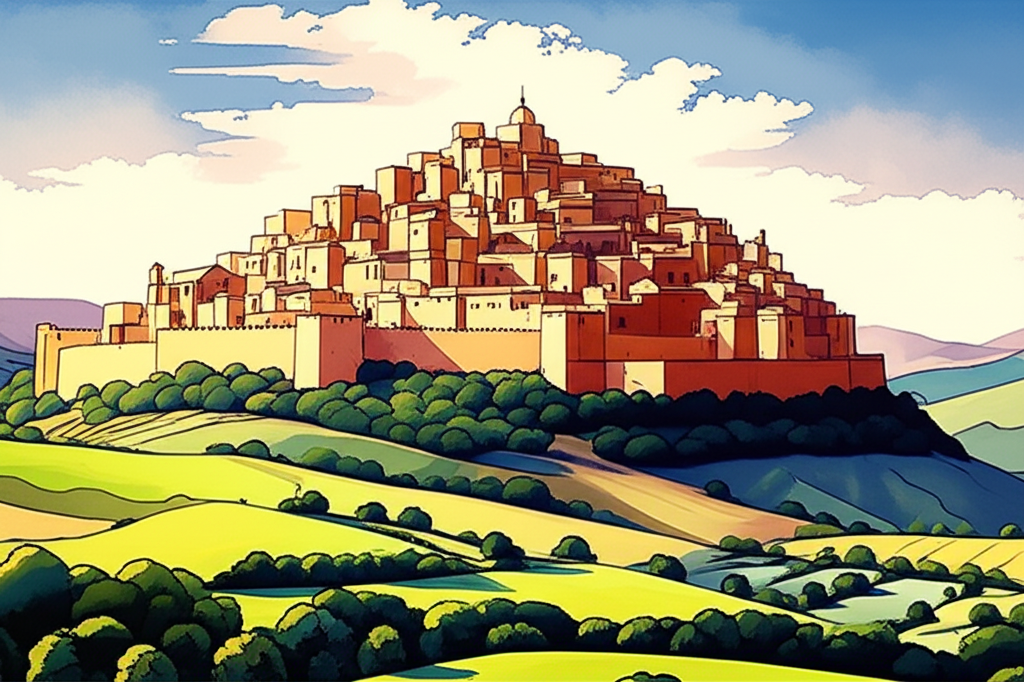
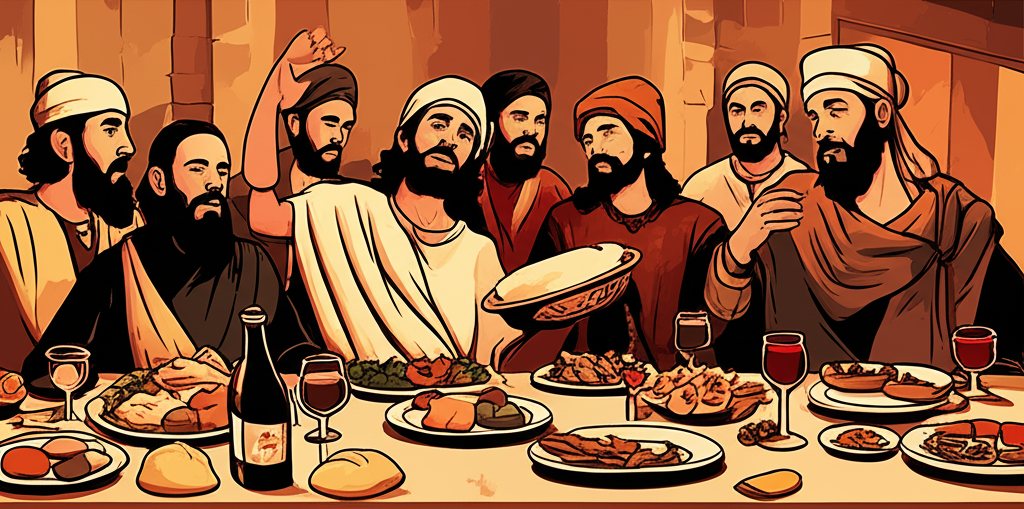
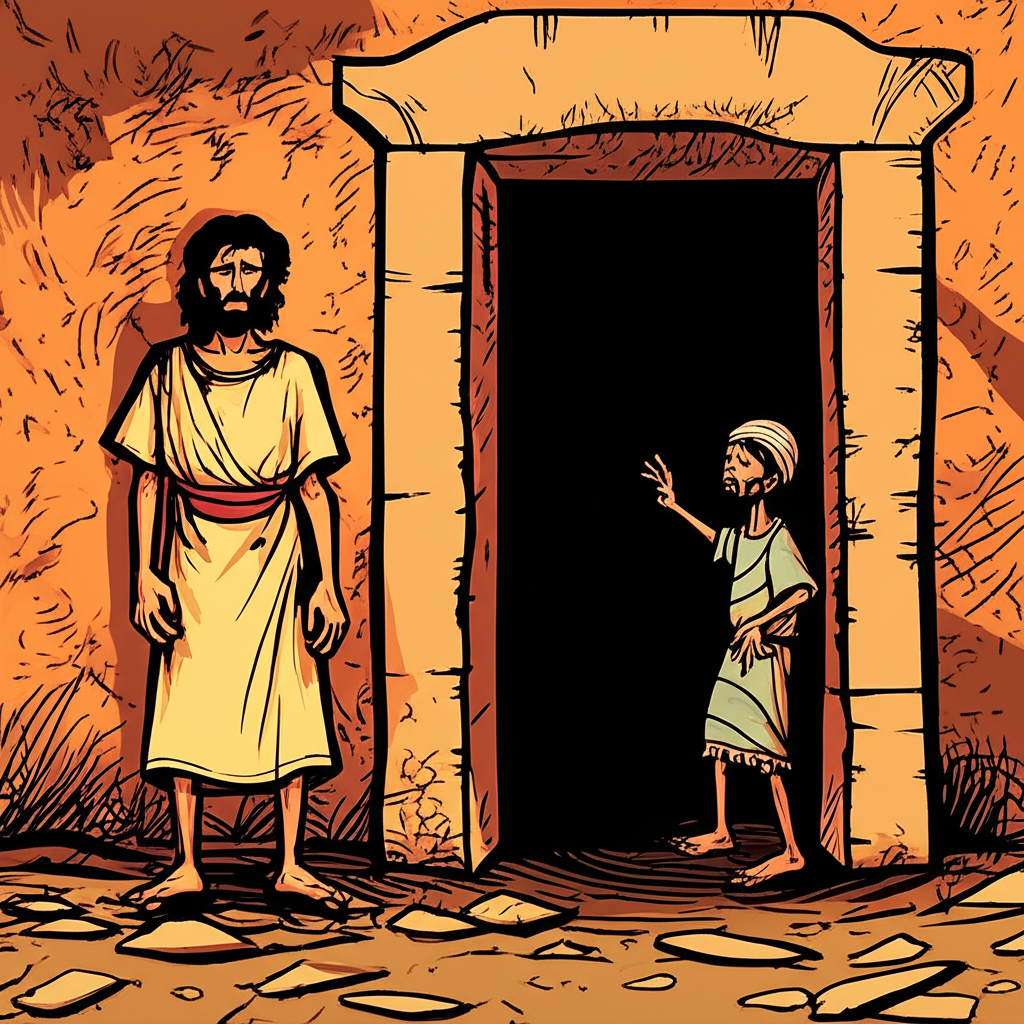
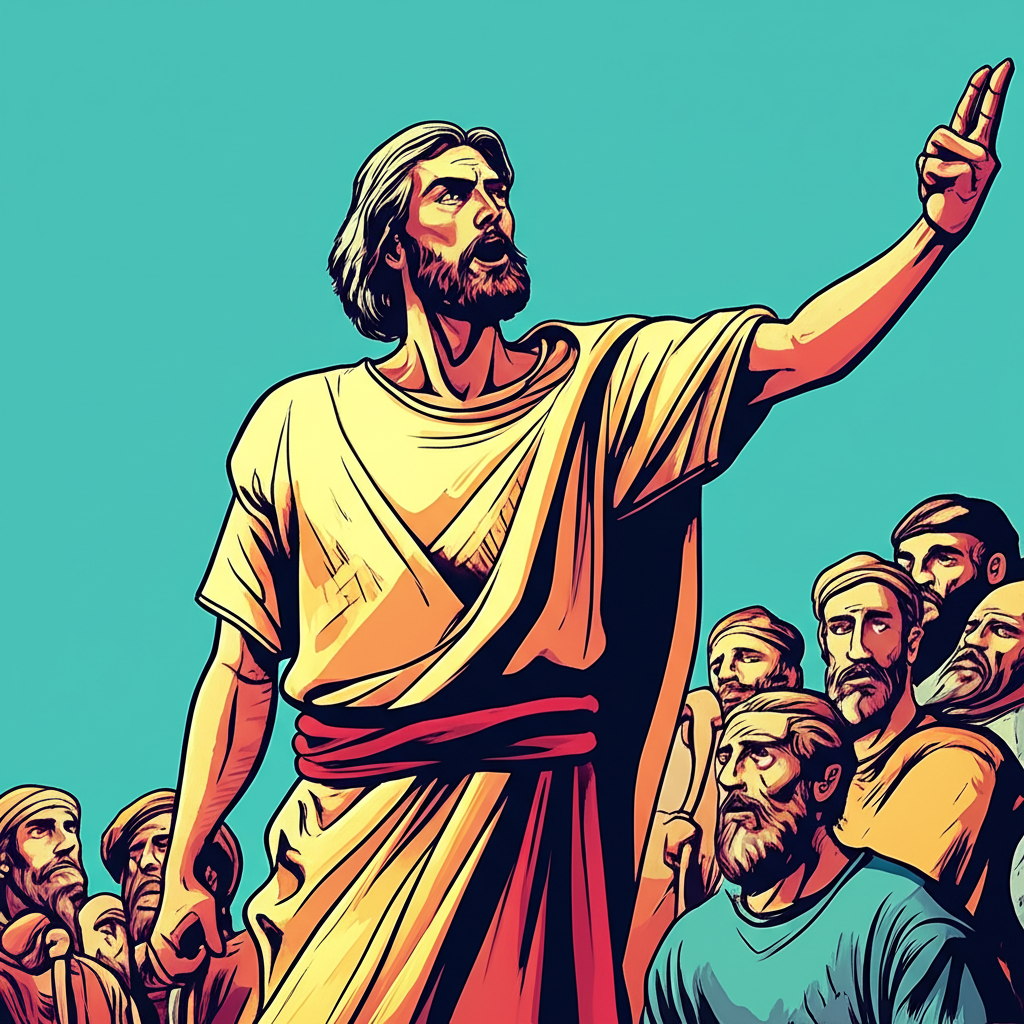


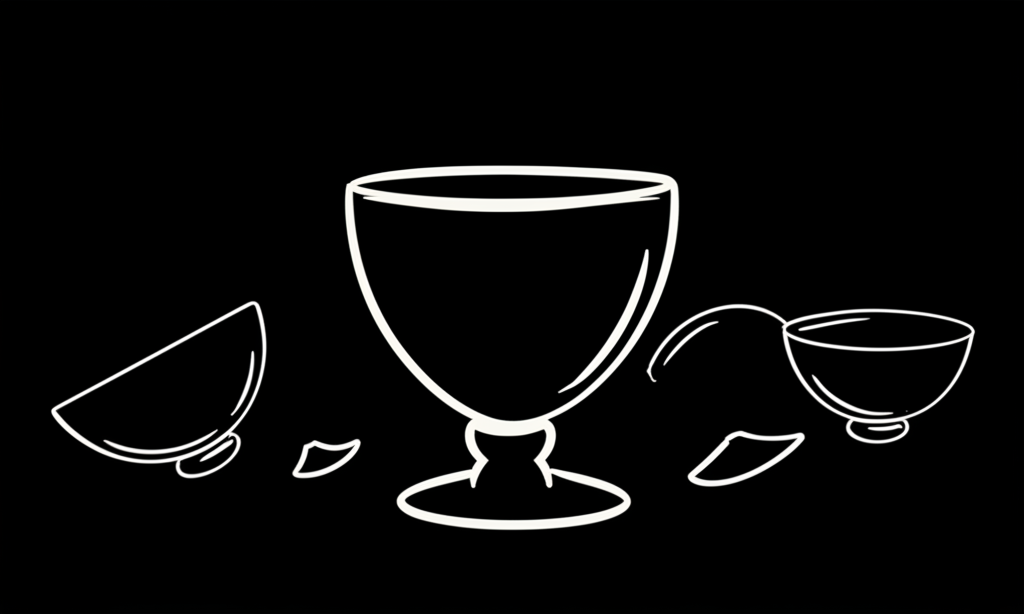
Amos chapter 6 kjv
- 1 Woe to them that are at ease in Zion, and trust in the mountain of Samaria, which are named chief of the nations, to whom the house of Israel came!
- 2 Pass ye unto Calneh, and see; and from thence go ye to Hamath the great: then go down to Gath of the Philistines: be they better than these kingdoms? or their border greater than your border?
- 3 Ye that put far away the evil day, and cause the seat of violence to come near;
- 4 That lie upon beds of ivory, and stretch themselves upon their couches, and eat the lambs out of the flock, and the calves out of the midst of the stall;
- 5 That chant to the sound of the viol, and invent to themselves instruments of musick, like David;
- 6 That drink wine in bowls, and anoint themselves with the chief ointments: but they are not grieved for the affliction of Joseph.
- 7 Therefore now shall they go captive with the first that go captive, and the banquet of them that stretched themselves shall be removed.
- 8 The Lord GOD hath sworn by himself, saith the LORD the God of hosts, I abhor the excellency of Jacob, and hate his palaces: therefore will I deliver up the city with all that is therein.
- 9 And it shall come to pass, if there remain ten men in one house, that they shall die.
- 10 And a man's uncle shall take him up, and he that burneth him, to bring out the bones out of the house, and shall say unto him that is by the sides of the house, Is there yet any with thee? and he shall say, No. Then shall he say, Hold thy tongue: for we may not make mention of the name of the LORD.
- 11 For, behold, the LORD commandeth, and he will smite the great house with breaches, and the little house with clefts.
- 12 Shall horses run upon the rock? will one plow there with oxen? for ye have turned judgment into gall, and the fruit of righteousness into hemlock:
- 13 Ye which rejoice in a thing of nought, which say, Have we not taken to us horns by our own strength?
- 14 But, behold, I will raise up against you a nation, O house of Israel, saith the LORD the God of hosts; and they shall afflict you from the entering in of Hemath unto the river of the wilderness.
Amos chapter 6 nkjv
- 1 Woe to you who are at ease in Zion, And trust in Mount Samaria, Notable persons in the chief nation, To whom the house of Israel comes!
- 2 Go over to Calneh and see; And from there go to Hamath the great; Then go down to Gath of the Philistines. Are you better than these kingdoms? Or is their territory greater than your territory?
- 3 Woe to you who put far off the day of doom, Who cause the seat of violence to come near;
- 4 Who lie on beds of ivory, Stretch out on your couches, Eat lambs from the flock And calves from the midst of the stall;
- 5 Who sing idly to the sound of stringed instruments, And invent for yourselves musical instruments like David;
- 6 Who drink wine from bowls, And anoint yourselves with the best ointments, But are not grieved for the affliction of Joseph.
- 7 Therefore they shall now go captive as the first of the captives, And those who recline at banquets shall be removed.
- 8 The Lord GOD has sworn by Himself, The LORD God of hosts says: "I abhor the pride of Jacob, And hate his palaces; Therefore I will deliver up the city And all that is in it."
- 9 Then it shall come to pass, that if ten men remain in one house, they shall die.
- 10 And when a relative of the dead, with one who will burn the bodies, picks up the bodies to take them out of the house, he will say to one inside the house, "Are there any more with you?" Then someone will say, "None." And he will say, "Hold your tongue! For we dare not mention the name of the LORD."
- 11 For behold, the LORD gives a command: He will break the great house into bits, And the little house into pieces.
- 12 Do horses run on rocks? Does one plow there with oxen? Yet you have turned justice into gall, And the fruit of righteousness into wormwood,
- 13 You who rejoice over Lo Debar, Who say, "Have we not taken Karnaim for ourselves By our own strength?"
- 14 "But, behold, I will raise up a nation against you, O house of Israel," Says the LORD God of hosts; "And they will afflict you from the entrance of Hamath To the Valley of the Arabah."
Amos chapter 6 niv
- 1 Woe to you who are complacent in Zion, and to you who feel secure on Mount Samaria, you notable men of the foremost nation, to whom the people of Israel come!
- 2 Go to Kalneh and look at it; go from there to great Hamath, and then go down to Gath in Philistia. Are they better off than your two kingdoms? Is their land larger than yours?
- 3 You put off the day of disaster and bring near a reign of terror.
- 4 You lie on beds adorned with ivory and lounge on your couches. You dine on choice lambs and fattened calves.
- 5 You strum away on your harps like David and improvise on musical instruments.
- 6 You drink wine by the bowlful and use the finest lotions, but you do not grieve over the ruin of Joseph.
- 7 Therefore you will be among the first to go into exile; your feasting and lounging will end.
- 8 The Sovereign LORD has sworn by himself?the LORD God Almighty declares: "I abhor the pride of Jacob and detest his fortresses; I will deliver up the city and everything in it."
- 9 If ten people are left in one house, they too will die.
- 10 And if the relative who comes to carry the bodies out of the house to burn them asks anyone who might be hiding there, "Is anyone else with you?" and he says, "No," then he will go on to say, "Hush! We must not mention the name of the LORD."
- 11 For the LORD has given the command, and he will smash the great house into pieces and the small house into bits.
- 12 Do horses run on the rocky crags? Does one plow the sea with oxen? But you have turned justice into poison and the fruit of righteousness into bitterness?
- 13 you who rejoice in the conquest of Lo Debar and say, "Did we not take Karnaim by our own strength?"
- 14 For the LORD God Almighty declares, "I will stir up a nation against you, Israel, that will oppress you all the way from Lebo Hamath to the valley of the Arabah."
Amos chapter 6 esv
- 1 "Woe to those who are at ease in Zion, and to those who feel secure on the mountain of Samaria, the notable men of the first of the nations, to whom the house of Israel comes!
- 2 Pass over to Calneh, and see, and from there go to Hamath the great; then go down to Gath of the Philistines. Are you better than these kingdoms? Or is their territory greater than your territory,
- 3 O you who put far away the day of disaster and bring near the seat of violence?
- 4 "Woe to those who lie on beds of ivory and stretch themselves out on their couches, and eat lambs from the flock and calves from the midst of the stall,
- 5 who sing idle songs to the sound of the harp and like David invent for themselves instruments of music,
- 6 who drink wine in bowls and anoint themselves with the finest oils, but are not grieved over the ruin of Joseph!
- 7 Therefore they shall now be the first of those who go into exile, and the revelry of those who stretch themselves out shall pass away."
- 8 The Lord GOD has sworn by himself, declares the LORD, the God of hosts: "I abhor the pride of Jacob and hate his strongholds, and I will deliver up the city and all that is in it."
- 9 And if ten men remain in one house, they shall die.
- 10 And when one's relative, the one who anoints him for burial, shall take him up to bring the bones out of the house, and shall say to him who is in the innermost parts of the house, "Is there still anyone with you?" he shall say, "No"; and he shall say, "Silence! We must not mention the name of the LORD."
- 11 For behold, the LORD commands, and the great house shall be struck down into fragments, and the little house into bits.
- 12 Do horses run on rocks? Does one plow there with oxen? But you have turned justice into poison and the fruit of righteousness into wormwood ?
- 13 you who rejoice in Lo-debar, who say, "Have we not by our own strength captured Karnaim for ourselves?"
- 14 "For behold, I will raise up against you a nation, O house of Israel," declares the LORD, the God of hosts; "and they shall oppress you from Lebo-hamath to the Brook of the Arabah."
Amos chapter 6 nlt
- 1 What sorrow awaits you who lounge in luxury in Jerusalem,
and you who feel secure in Samaria!
You are famous and popular in Israel,
and people go to you for help. - 2 But go over to Calneh
and see what happened there.
Then go to the great city of Hamath
and down to the Philistine city of Gath.
You are no better than they were,
and look at how they were destroyed. - 3 You push away every thought of coming disaster,
but your actions only bring the day of judgment closer. - 4 How terrible for you who sprawl on ivory beds
and lounge on your couches,
eating the meat of tender lambs from the flock
and of choice calves fattened in the stall. - 5 You sing trivial songs to the sound of the harp
and fancy yourselves to be great musicians like David. - 6 You drink wine by the bowlful
and perfume yourselves with fragrant lotions.
You care nothing about the ruin of your nation. - 7 Therefore, you will be the first to be led away as captives.
Suddenly, all your parties will end. - 8 The Sovereign LORD has sworn by his own name, and this is what he, the LORD God of Heaven's Armies, says: "I despise the arrogance of Israel,
and I hate their fortresses.
I will give this city
and everything in it to their enemies." - 9 (If there are ten men left in one house, they will all die.
- 10 And when a relative who is responsible to dispose of the dead goes into the house to carry out the bodies, he will ask the last survivor, "Is anyone else with you?" When the person begins to swear, "No, by . . . ," he will interrupt and say, "Stop! Don't even mention the name of the LORD.")
- 11 When the LORD gives the command,
homes both great and small will be smashed to pieces. - 12 Can horses gallop over boulders?
Can oxen be used to plow them?
But that's how foolish you are when you turn justice into poison
and the sweet fruit of righteousness into bitterness. - 13 And you brag about your conquest of Lo-debar.
You boast, "Didn't we take Karnaim by our own strength?" - 14 "O people of Israel, I am about to bring an enemy nation against you,"
says the LORD God of Heaven's Armies.
"They will oppress you throughout your land ?
from Lebo-hamath in the north
to the Arabah Valley in the south."
- Bible Book of Amos
- 1 Judgment on Israel's Neighbors
- 2 Judgment on Judah
- 3 Israel's Guilt and Punishment
- 4 Israel Has Not Returned to the Lord
- 5 Seek the Lord and Live
- 6 Woe to Those at Ease in Zion
- 7 Warning Visions
- 8 The Coming Day of Bitter Mourning
- 9 The Destruction of Israel